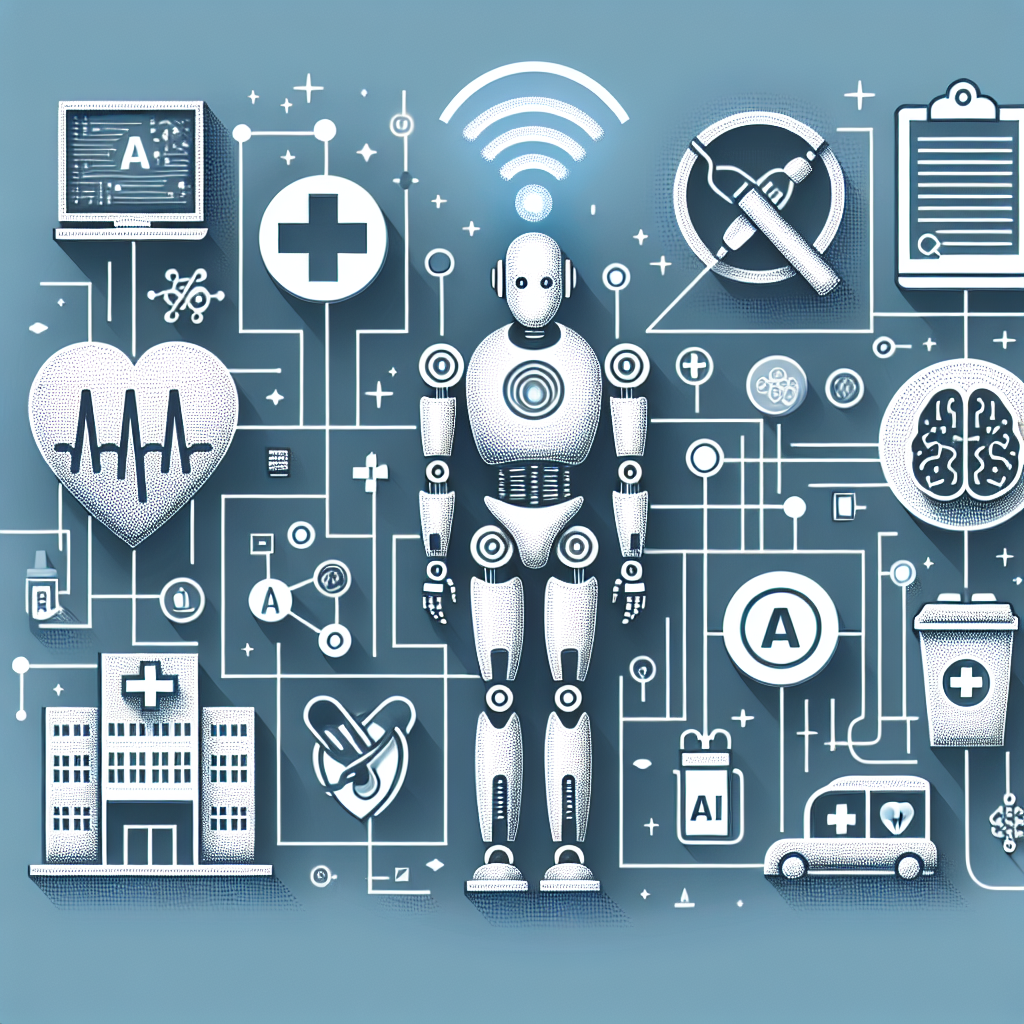Introduction:
Artificial Intelligence (AI) has been revolutionizing various industries, and healthcare is no exception. The use of AI in healthcare has the potential to transform the way medical professionals diagnose and treat patients, ultimately improving patient outcomes and reducing healthcare costs. In this article, we will explore the impact of AI in healthcare, its benefits, challenges, and potential future developments.
Benefits of AI in Healthcare:
1. Improved Diagnosis and Treatment: AI algorithms can analyze vast amounts of medical data, such as patient records, lab results, and imaging scans, to identify patterns and trends that may not be easily recognizable by human doctors. This can lead to more accurate and timely diagnoses, as well as personalized treatment plans tailored to each patient’s unique needs.
2. Enhanced Patient Care: AI-powered tools can also improve the overall patient experience by streamlining administrative tasks, such as scheduling appointments and managing medical records. This allows healthcare providers to spend more time interacting with patients and delivering high-quality care.
3. Predictive Analytics: AI can help predict and prevent adverse health events by analyzing data to identify patients who are at risk of developing certain conditions or complications. This proactive approach can lead to early interventions and better health outcomes for patients.
4. Drug Discovery and Development: AI can accelerate the drug discovery process by analyzing vast amounts of data to identify potential drug candidates and predict their efficacy and safety profiles. This can help pharmaceutical companies bring new treatments to market faster and more cost-effectively.
Challenges of AI in Healthcare:
1. Data Privacy and Security: One of the biggest challenges of using AI in healthcare is ensuring the privacy and security of patient data. Healthcare organizations must implement robust security measures to protect sensitive information from data breaches and unauthorized access.
2. Regulatory Compliance: The use of AI in healthcare is subject to strict regulatory requirements, such as the Health Insurance Portability and Accountability Act (HIPAA) in the United States. Healthcare organizations must ensure that their AI systems comply with these regulations to avoid legal and financial consequences.
3. Bias and Fairness: AI algorithms can inadvertently perpetuate biases present in the data they are trained on, leading to unfair or discriminatory outcomes. Healthcare organizations must carefully monitor and mitigate bias in their AI systems to ensure equitable and unbiased care for all patients.
4. Integration with Existing Systems: Integrating AI tools into existing healthcare infrastructure can be complex and time-consuming, requiring careful planning and coordination to ensure seamless interoperability and user adoption.
Future Developments in AI Healthcare:
1. Personalized Medicine: AI has the potential to revolutionize healthcare by enabling personalized medicine tailored to each individual’s genetic makeup, lifestyle, and health history. This approach can lead to more effective treatments and better health outcomes for patients.
2. Remote Monitoring and Telemedicine: AI-powered devices and applications can enable remote monitoring of patients’ health status and facilitate virtual consultations with healthcare providers. This can improve access to care, particularly for patients in rural or underserved areas.
3. Robotics and Automation: AI-powered robots and automation systems can assist healthcare professionals in performing routine tasks, such as medication dispensing, surgical procedures, and patient monitoring. This can reduce the burden on healthcare providers and improve efficiency in healthcare settings.
4. AI Ethics and Governance: As AI continues to advance in healthcare, there is a growing need for ethical guidelines and governance frameworks to ensure that AI systems are developed and deployed responsibly. This includes considerations of transparency, accountability, and fairness in AI decision-making.
FAQs:
1. What are some examples of AI applications in healthcare?
Some examples of AI applications in healthcare include diagnostic imaging algorithms that can detect abnormalities in medical images, predictive analytics tools that can identify patients at risk of developing certain conditions, and virtual health assistants that can provide personalized health information and recommendations.
2. How does AI improve patient outcomes in healthcare?
AI can improve patient outcomes in healthcare by enabling more accurate and timely diagnoses, personalized treatment plans, and proactive interventions to prevent adverse health events. By analyzing vast amounts of medical data, AI can help healthcare providers make more informed decisions and deliver better care to patients.
3. What are some challenges of using AI in healthcare?
Some challenges of using AI in healthcare include data privacy and security concerns, regulatory compliance requirements, bias and fairness issues, and integration with existing systems. Healthcare organizations must address these challenges to ensure the successful implementation of AI tools in healthcare settings.
4. What are some future developments in AI healthcare?
Some future developments in AI healthcare include personalized medicine, remote monitoring and telemedicine, robotics and automation, and AI ethics and governance. These advancements have the potential to transform healthcare delivery and improve patient outcomes in the years to come.
Conclusion:
The impact of AI in healthcare is profound and far-reaching, with the potential to revolutionize the way medical professionals diagnose, treat, and care for patients. By leveraging AI-powered tools and technologies, healthcare organizations can improve patient outcomes, reduce costs, and enhance the overall quality of care. As AI continues to advance in healthcare, it is important for healthcare providers to address challenges such as data privacy, bias, and regulatory compliance, while also embracing future developments in personalized medicine, remote monitoring, robotics, and AI ethics. By doing so, healthcare organizations can harness the full potential of AI to deliver better, more efficient, and more equitable care to patients around the world.

